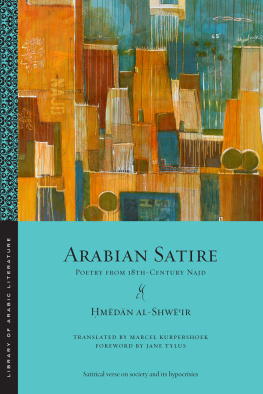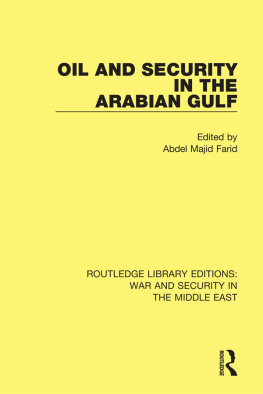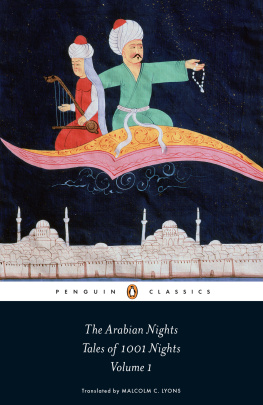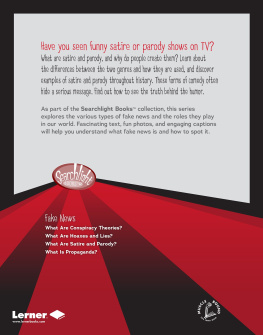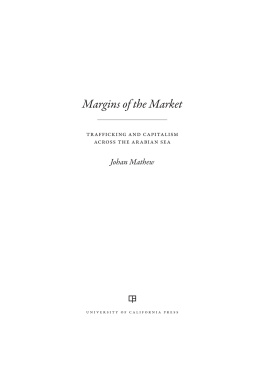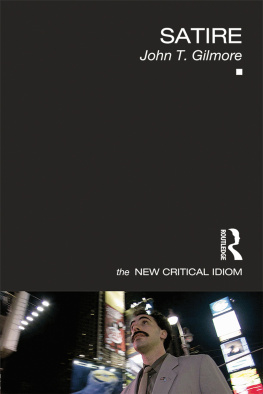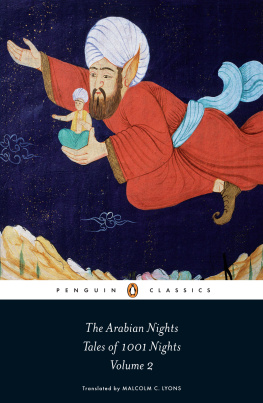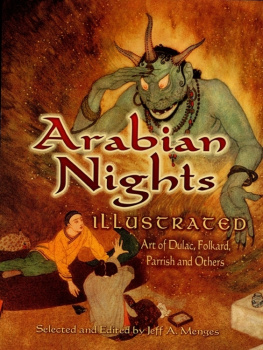Ḥmēdān al-Shwēʿir - Arabian Satire
Here you can read online Ḥmēdān al-Shwēʿir - Arabian Satire full text of the book (entire story) in english for free. Download pdf and epub, get meaning, cover and reviews about this ebook. year: 2020, publisher: NYU Press, genre: Detective and thriller. Description of the work, (preface) as well as reviews are available. Best literature library LitArk.com created for fans of good reading and offers a wide selection of genres:
Romance novel
Science fiction
Adventure
Detective
Science
History
Home and family
Prose
Art
Politics
Computer
Non-fiction
Religion
Business
Children
Humor
Choose a favorite category and find really read worthwhile books. Enjoy immersion in the world of imagination, feel the emotions of the characters or learn something new for yourself, make an fascinating discovery.
- Book:Arabian Satire
- Author:
- Publisher:NYU Press
- Genre:
- Year:2020
- Rating:3 / 5
- Favourites:Add to favourites
- Your mark:
- 60
- 1
- 2
- 3
- 4
- 5
Arabian Satire: summary, description and annotation
We offer to read an annotation, description, summary or preface (depends on what the author of the book "Arabian Satire" wrote himself). If you haven't found the necessary information about the book — write in the comments, we will try to find it.
Arabian Satire — read online for free the complete book (whole text) full work
Below is the text of the book, divided by pages. System saving the place of the last page read, allows you to conveniently read the book "Arabian Satire" online for free, without having to search again every time where you left off. Put a bookmark, and you can go to the page where you finished reading at any time.
Font size:
Interval:
Bookmark:

ARABIAN SATIRE
LIBRARY OF ARABIC LITERATURE
EDITORIAL BOARD
GENERAL EDITOR
Philip F. Kennedy, New York University
EXECUTIVE EDITORS
James E. Montgomery, University of Cambridge
Shawkat M. Toorawa, Yale University
EDITORS
Sean Anthony, The Ohio State University
Julia Bray, University of Oxford
Michael Cooperson, University of California, Los Angeles
Joseph E. Lowry, University of Pennsylvania
Maurice Pomerantz, New York University Abu Dhabi
Tahera Qutbuddin, University of Chicago
Devin J. Stewart, Emory University
EDITORIAL DIRECTOR
Chip Rossetti
DIGITAL PRODUCTION MANAGER
Stuart Brown
ASSISTANT EDITOR
Lucie Taylor
FELLOWSHIP PROGRAM COORDINATOR
Amani Al-Zoubi
LETTER FROM THE GENERAL EDITOR

The Library of Arabic Literature makes available Arabic editions and English translations of significant works of Arabic literature, with an emphasis on the seventh to nineteenth centuries. The Library of Arabic Literature thus includes texts from the pre-Islamic era to the cusp of the modern period, and encompasses a wide range of genres, including poetry, poetics, fiction, religion, philosophy, law, science, travel writing, history, and historiography.
Books in the series are edited and translated by internationally recognized scholars. They are published in parallel-text and English-only editions in both print and electronic formats. PDFs of Arabic editions are available for free download. The Library of Arabic Literature also publishes distinct scholarly editions with critical apparatus and a separate Arabic-only series aimed at young readers.
The Library encourages scholars to produce authoritative Arabic editions, accompanied by modern, lucid English translations, with the ultimate goal of introducing Arabics rich literary heritage to a general audience of readers as well as to scholars and students.
The Library of Arabic Literature is supported by a grant from the New York University Abu Dhabi Institute and is published by NYU Press.
Philip F. Kennedy
General Editor, Library of Arabic Literature
ABOUT THIS PAPERBACK
This paperback edition differs in a few respects from its dual-language hardcover predecessor. Because of the compact trim size the pagination has changed. Material that referred to the Arabic edition has been updated to reflect the English-only format, and other material has been corrected and updated where appropriate. For information about the Arabic edition on which this English translation is based and about how the LAL Arabic text was established, readers are referred to the hardcover.
ARABIAN SATIRE
Poetry from 18th-Century Najd
BY
MDN AL-SHWIR

TRANSLATED BY
MARCEL KURPERSHOEK
FOREWORD BY
JANE TYLUS
REVIEWED BY
SAAD SOWAYAN
VOLUME EDITORS
CLIVE HOLES
PHILIP F. KENNEDY

NEW YORK UNIVERSITY PRESS
New York
Copyright 2020 by New York University
All rights reserved
Library of Congress Cataloging-in-Publication Data
Names: Shuwayir, amdn, active 18th century author. | Kurpershoek, P. M. editor, translator. | Tylus, Jane, 1956 author of foreword. | Sowayan, Saad Abdullah, editor.
Title: Arabian satire : poetry from 18th-century Najd / mdn al-Shwir ; translated by Marcel Kurpershoek ; foreword by Jane Tylus ; reviewed by Saad Sowayan.
Description: New York : New York University Press, 2020. | Series: Library of Arabic literature | Includes bibliographical references and index. | Summary: A master of satire known for his ribald humor, self-deprecation, and invective verse (hij), the poet mdn al-Shw'ir was an acerbic critic of his society and its moralsProvided by publisher.
Identifiers: LCCN 2019053876 (print) | LCCN 2019053877 (ebook) | ISBN 9781479885169 (paperback) | ISBN 9781479846764 (ebook) | ISBN 9781479840274 (ebook)
Classification: LCC PJ7765.S58 A2 2020 (print) | LCC PJ7765.S58 (ebook) | DDC 892.7/14dc23
LC record available at https://lccn.loc.gov/2019053876
LC ebook record available at https://lccn.loc.gov/2019053877
Series design and composition by Nicole Hayward
Typeset in Adobe Text
Manufactured in the United States of America
10 9 8 7 6 5 4 3 2 1
CONTENTS
FOREWORD
JANE TYLUS
There are tales galore about events, my friends;
fishy affairs brought to light through my intellect
mdn al-Shwir
What is a satirist? Generally, a self-protective loner, aloof from the crowd, irritable and edgy and shrill. But a satirist may be more endearing to readers when that voice is less piercing and occasionally turned inward. The satirist who can make fun of him- or herself, who brings into the mix a degree of not so much self-loathing as self-critique, tends to earn our confidence as well as our sympathy. And the eighteenth-century Central Arabian poet mdn al-Shwir, weak of limb, but a master of speech and thought, (16.5) does just that. He tells things like they are, and we believe him because hes clear-eyed enough to see his own faults and sufficiently modest to disclose them. As he calls out brutality, perversity, laziness, and especially hypocrisyfor his is the art of bursting vain pretensions (18.1)he also tells on himself: an old graybeard, whose prick, once as hard as yew (5.9) now dangles helplessly between his legs.
This is the extraordinary, unpredictable voice that Marcel Kurpershoek has captured for us in its rich contradictionsa voice none too easy to define, let alone translate into an English that speaks urgently, at times aggressively, to a modern audience. The fact that mdn is contemporary with one of the great seasons of satire in Britain, of Gulliver among the Lilliputians and a Modest Proposal shockingly immodest in its exhortation to cannibalize the Irish, makes it tempting to compare him with Jonathan Swift and Alexander Pope, both born in the late seventeenth century. Like these writers, mdn too is of modest stock; his people are traders in fire bush and digestive salts and he feels povertys pinch. Swifts satires verge on irony, but at times convey that raw sense of outrage that mdn directs at so many, from outrageous boasters to his wifeconstantly belittledand his sonsfrequently mocked. mdn opens poem 19 with the georgic line Our plowmen labored in the fields, only to deflate it with an allusion to a son distracted by little Sarah, (19.1) busy buying up musk and ambergris for his second wife rather than working. When not annoyed by his own people, he takes pride in them, and revels in the beauty of his lands, just like eighteenth-century Englishmen did under Queen Anne.
And yet the real parallels in the western world are earlier, in another empire also in its youth: the Roman one. Even as it shares Juvenals taste for invective, mdns verse ultimately has more in common with that of the manumitted slave Horace. Horaces oeuvre was wide-ranging if slender, because most of what he wrote was so short: his Ars Poetica or Epistle to the Pisos, which mdn weirdly echoes at several points, was the longest thing Horace ever wrote at some four hundred lines. Horace too takes pride in his rural surrounds, he too is grateful to his influential patrons and not (overly) eager to antagonize them even as he feels free on occasion to speak truth to power. He too has an ear for the lyrical as well as for the pithy putdown. And both poets choose their meters carefully so as to fit what it was they have to say: ode, epode, epistle;
Next pageFont size:
Interval:
Bookmark:
Similar books «Arabian Satire»
Look at similar books to Arabian Satire. We have selected literature similar in name and meaning in the hope of providing readers with more options to find new, interesting, not yet read works.
Discussion, reviews of the book Arabian Satire and just readers' own opinions. Leave your comments, write what you think about the work, its meaning or the main characters. Specify what exactly you liked and what you didn't like, and why you think so.

